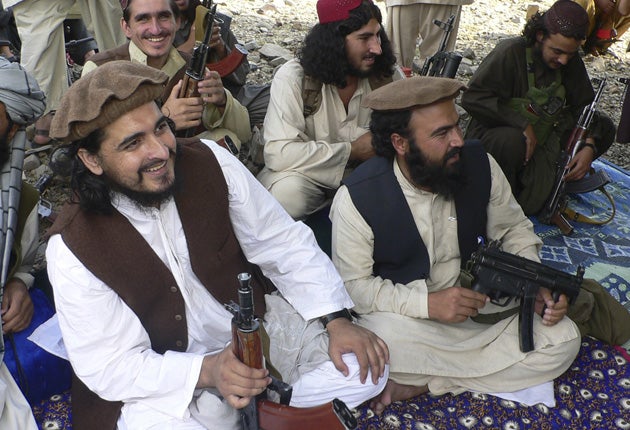Pakistan demands help to catch 'most wanted'

Your support helps us to tell the story
From reproductive rights to climate change to Big Tech, The Independent is on the ground when the story is developing. Whether it's investigating the financials of Elon Musk's pro-Trump PAC or producing our latest documentary, 'The A Word', which shines a light on the American women fighting for reproductive rights, we know how important it is to parse out the facts from the messaging.
At such a critical moment in US history, we need reporters on the ground. Your donation allows us to keep sending journalists to speak to both sides of the story.
The Independent is trusted by Americans across the entire political spectrum. And unlike many other quality news outlets, we choose not to lock Americans out of our reporting and analysis with paywalls. We believe quality journalism should be available to everyone, paid for by those who can afford it.
Your support makes all the difference.The black-and-white front page notices on Pakistan's newspapers looked like a throwback to America's own epoch of lawless violence, though in place of the words "Wanted Dead or Alive" there was a Koranic verse exhorting the faithful to "not make mischief on the earth". They featured Pakistan's most wanted, all 19 of them from the wild northwest.
Public Enemy Number One, pictured with his trademark woollen cap, is Hakimullah Mehsud. The hot-headed young commander assumed the leadership of the Pakistani Taliban after his leader, Baitullah Mehsud, was struck down by a CIA-operated drone strike in August.
Like all the best outlaws, Hakimullah's whereabouts are unknown. Some army officers believe that he may have found sanctuary in the Badr Valley, on South Waziristan's highest peak, the thick forest shielding him from the threat of a drone strike. Other observers suspect that he has ventured further north, into North Waziristan, and beyond the scope of the current operation.
Considered less experienced and less fearsome than his predecessor, Hakimullah commands a suitably smaller bounty on his head. Washington was offering $3m (£1.8m) for information leading to the capture of Baitullah, but for Hakimullah the Pakistani government is offering a mere £376,000 – just about enough to buy a comfortable house in Islamabad.
Equal amounts are being offered for information leading to the capture of Hakimullah's two sidekicks. Wali-ur-Rehman, also from the Mehsud tribe of eastern South Waziristan, was a close aide to Baitullah and is considered a "shrewd, intelligent strategist".
The whereabouts of Rehman are also unknown, but senior army officers suspect he is still hunkered down in South Waziristan's barren fastness. They have overheard him addressing his footsoldiers over a wireless device. Thanks to US assistance, they can now monitor the Taliban's communications closely.
Despite these technological advances, however, militants like number three, Qari Hussain remain elusive. Earlier this month, the army said it seized control of Kotkai, the home village of the man they call the "godfather of suicide bombers". But although they claim to have seized some of the material he used to strike terror in Pakistan's major cities, Hussain himself was long gone.
As the notices make clear, anyone who manages to collect the right information on Pakistan's most wanted, or even seize the suspects themselves, needs to contact their local administration to collect their reward.
Join our commenting forum
Join thought-provoking conversations, follow other Independent readers and see their replies
Comments